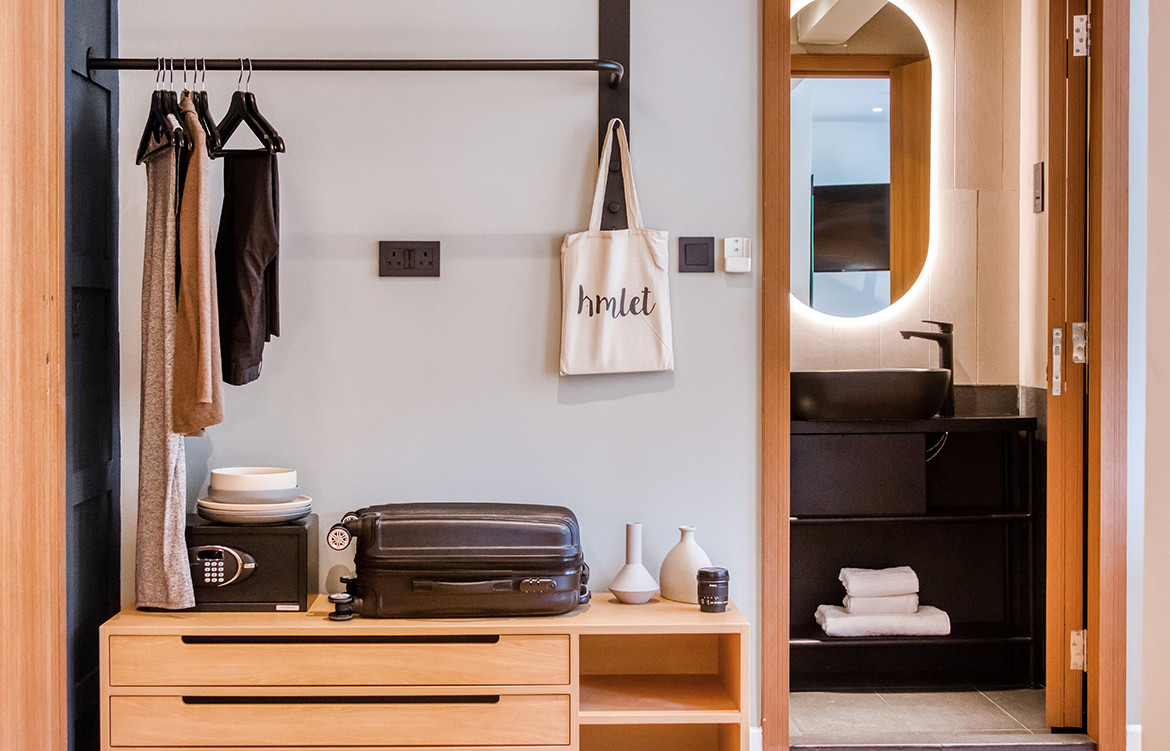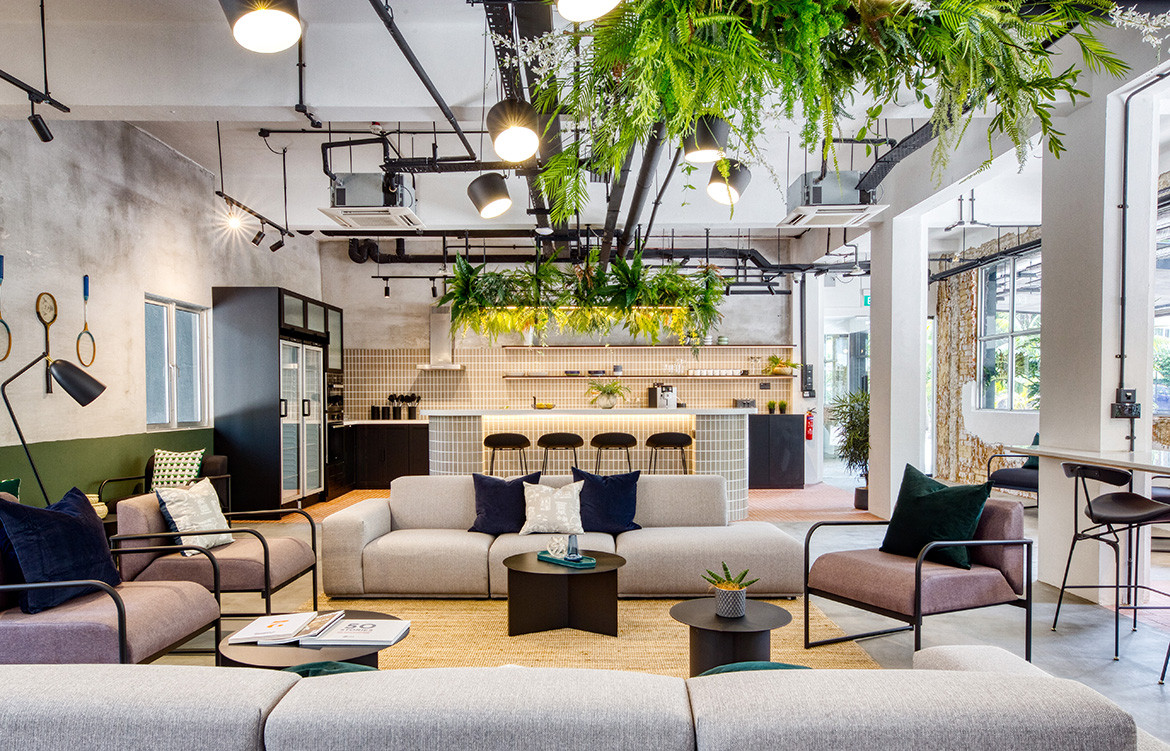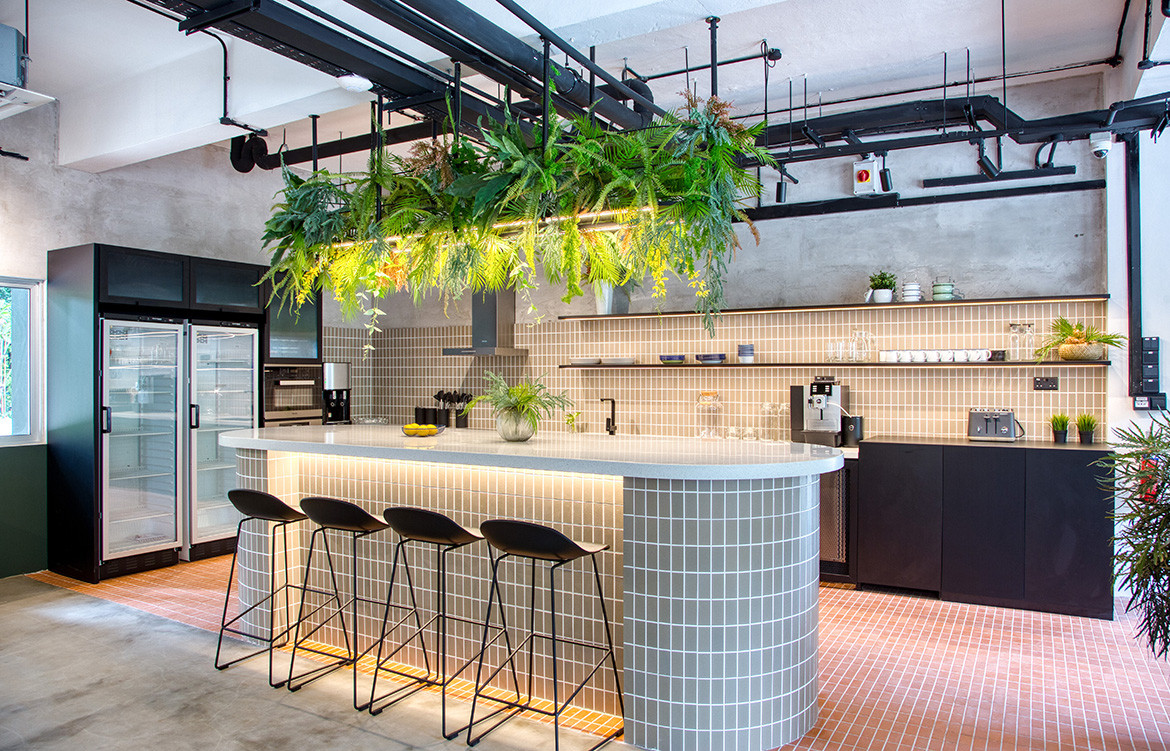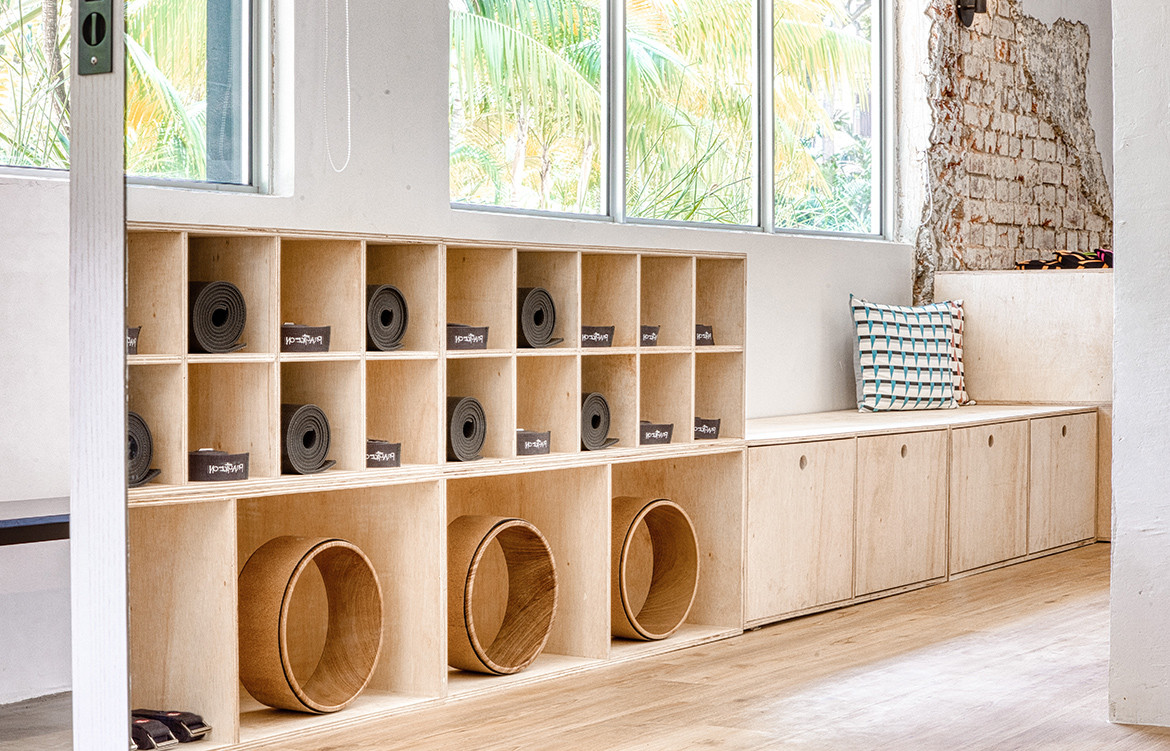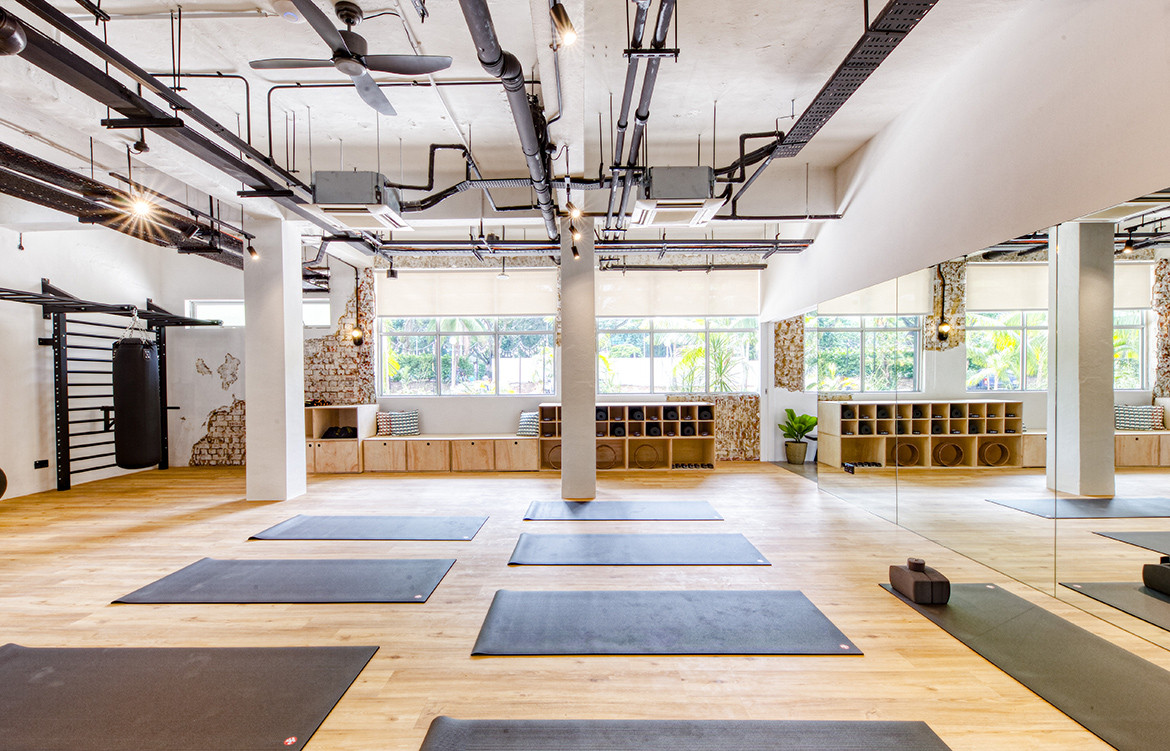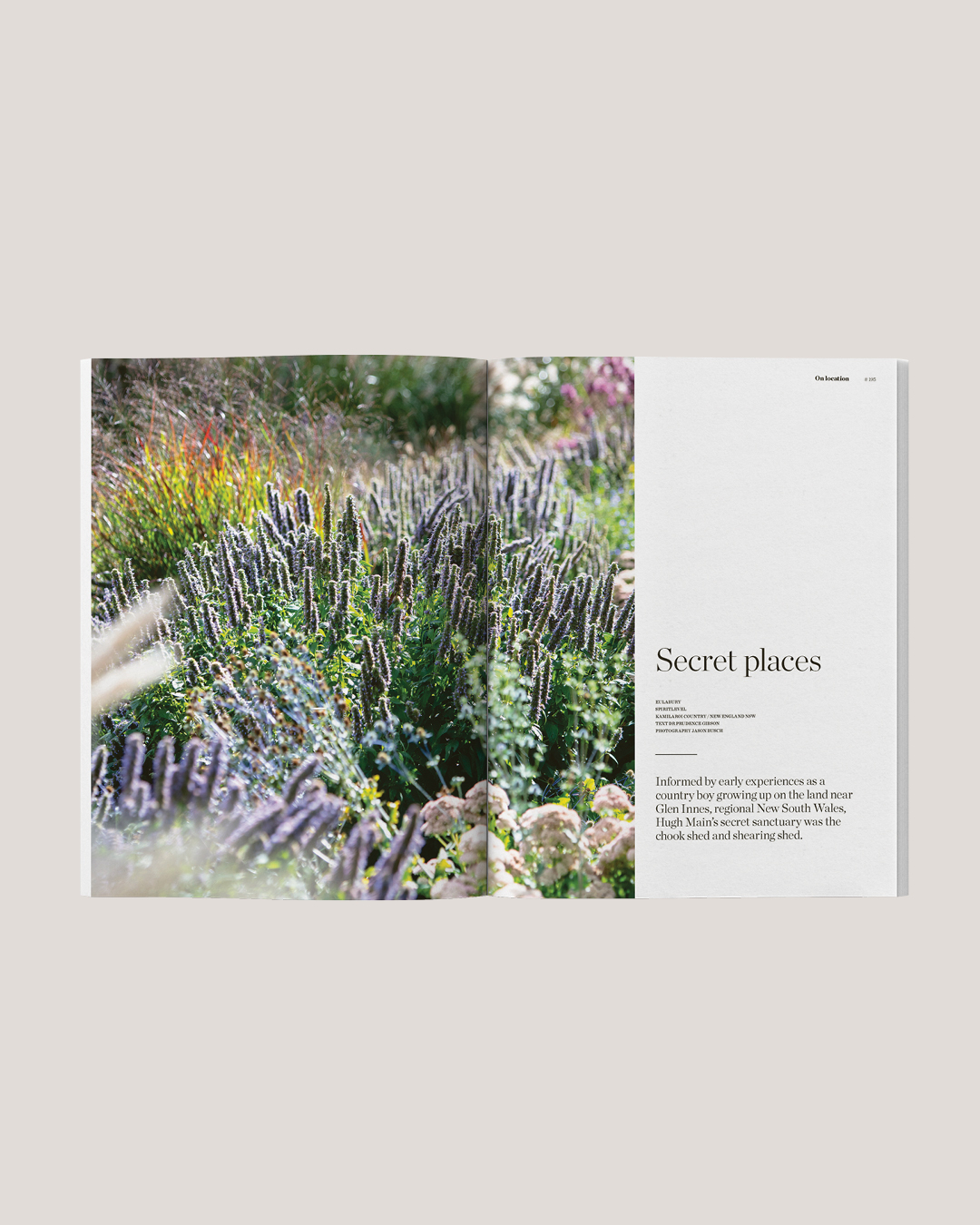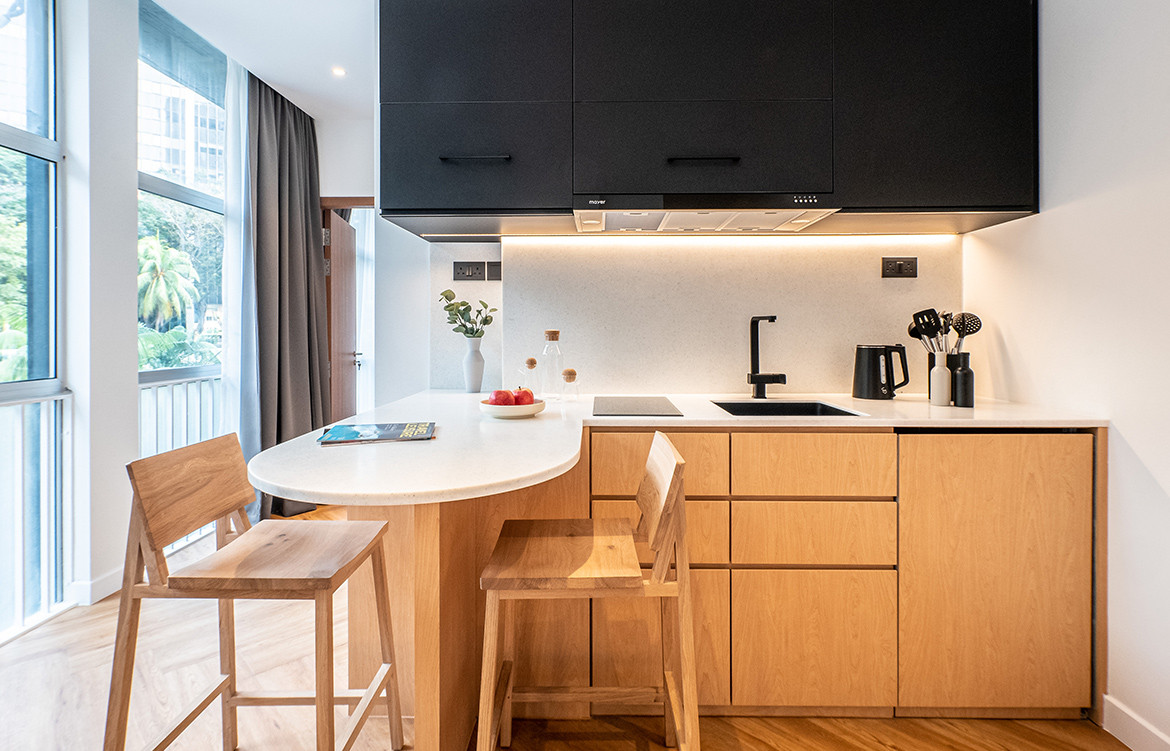Launched in 2016 in Singapore by entrepreneurs Yoan Kamalski and Zenos Schmickrath, Hmlet operates more than 90 locations in Singapore, Hong Kong, Australia, and Japan. The co-living brand aims to provide affordable and flexible housing solutions with a built-in community for the increasingly mobile workforce who are constantly on the move.
The 76,000 square-foot premise offers 150 rooms spread across two blocks and three levels, each custom-designed by Hmlet’s in-house design team. “The biggest constraints in turning the building into a co-living facility is definitely the regulation,” shares Amelia Koo, Hmlet’s in-house interior design who helmed the renovation project.
The building has been designated as a heritage building and the address zoned for residential purposes by the URA. The Hmlet team built the 150 rooms on the building’s original structure. And instead of trying to hide it, they let traces of the building’s history be the highlight of the design.
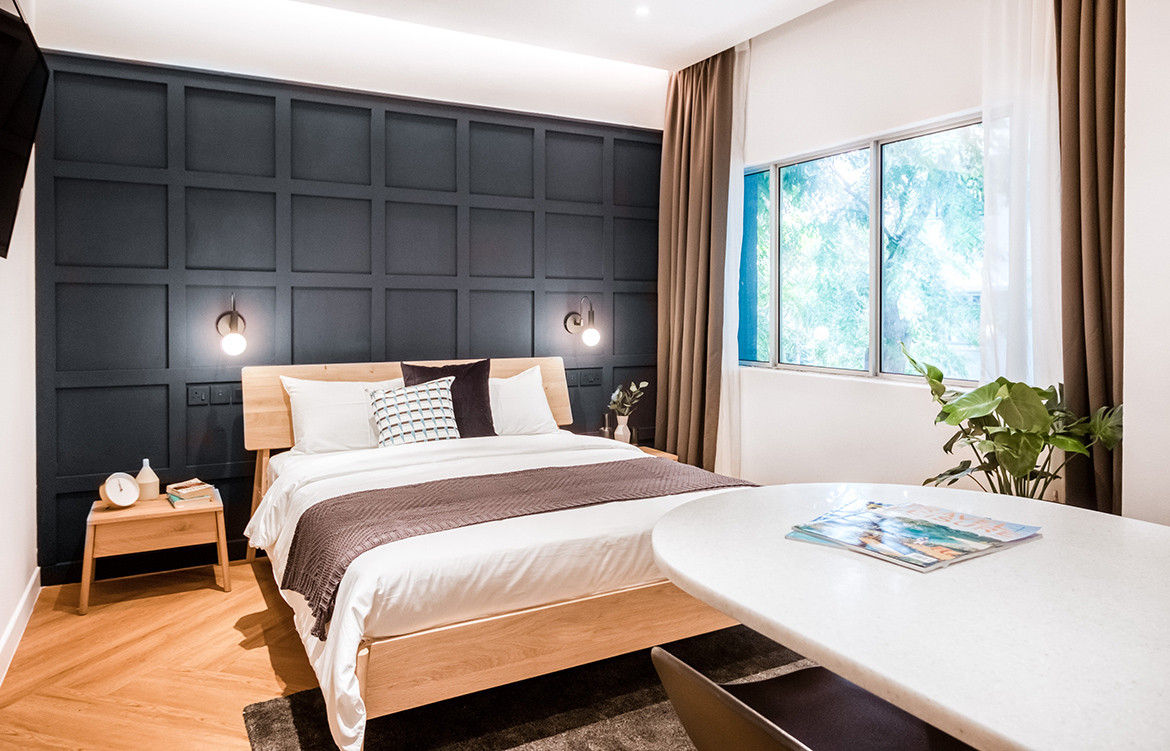
Walls were removed and the existing structural grid, which had divided the interior neatly into compact classrooms, was creatively re-partitioned into larger apartment units. Thanks to this, no two rooms have the same exact footprint and furniture layout. Here and there, the building’s colourful history pops up like delightful surprises.
The original balcony railing becomes a feature on apartment walls; ’50s terrazzo and pebble wash staircase provide a romantic contrast against contemporary lighting fixtures and whitewash walls; original brick walls were partially exposed to add texture to the room; and vintage artefacts from the building’s previous tenures were displayed as decor. The result is a layered and inviting look.
“We put emphasis on flexibility, multi-functionality and comfort,” says Koo of Hmlet Cantonment’s interior design. The material colour palette comprises pastels and neutrals with pops of green courtesy of plants (both real and artificial) curated by local botanical studio This Humid House.
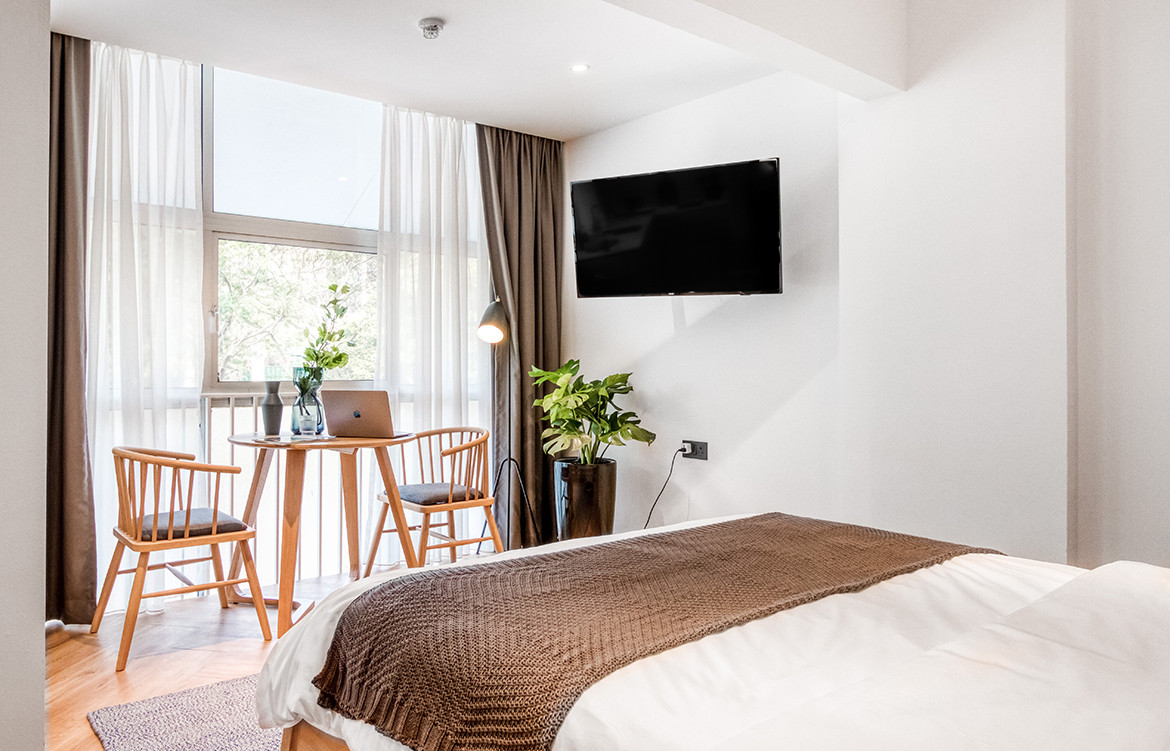
Most of the furniture pieces are custom-designed by the in-house team to either suit a specific room – think of elements kitchen island with a hidden compartment that contains the washing machine, or a counter that takes care of an awkward angle in the room – or to provide maximum flexibility.
In the premise’s largest common area (dubbed The Canteen) for example, all the furniture elements, save the bar, are loose, allowing the room to be easily rearranged to suit accommodate different events.
There is a community manager, whose job is identical to those hired by the coworking brands – connecting people and build community. Communal activities like yoga classes and walking tours are provided, but engagement is totally optional.
Hmlet tenants (‘members’ in the Hmlet brand lexicon) can choose to use the communal facilities and mingle with staff and fellow tenants, or spend their days without talking to anybody else if they so desired.
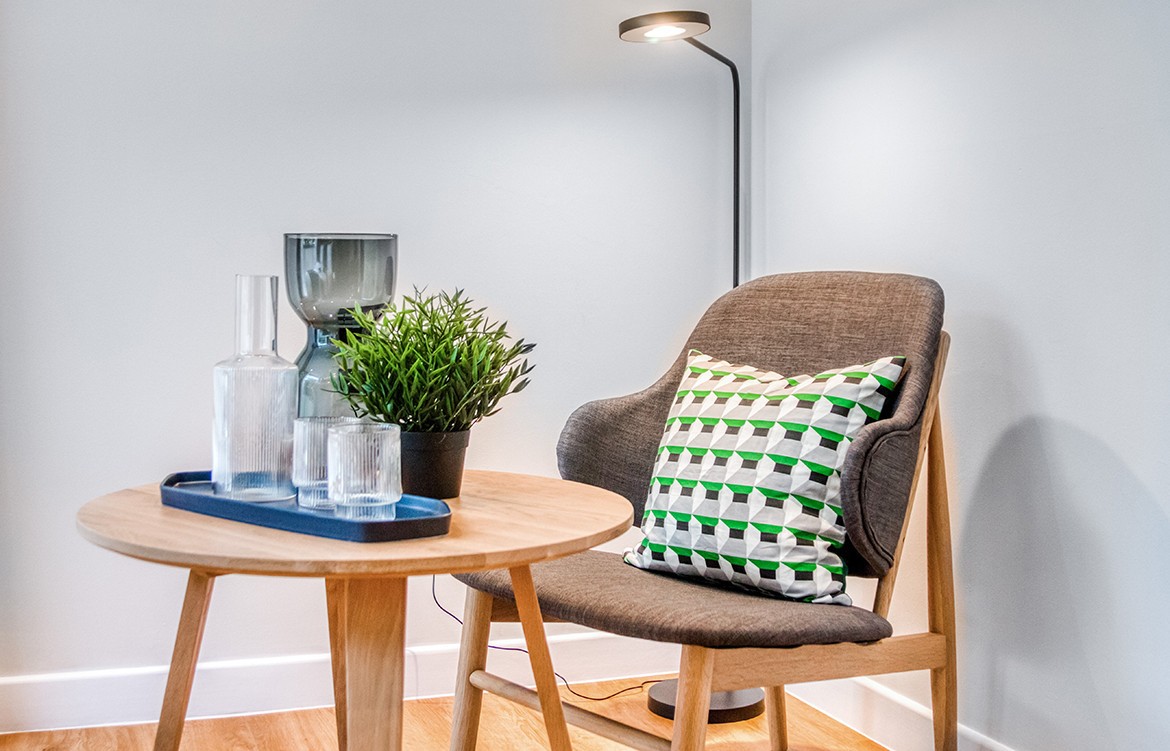
Members are also granted a degree of freedom to bring their own furniture to their living space, depending on the length of their stay. Hmlet Cantonment offers both long- and short-term stays, which starts from a minimum of six nights, a considerably shorter term than the other Hmlet locations in Singapore.
This is thanks to URA’s zoning, which does not allow hotels in the area but allows for service apartments license. Asked if Hmlet will expand to full-fledged hotel business in the future, Hmlet Cantonment’s General Manager Nicolas Westen didn’t rule out the possibility, “should the right property with the right zoning and the right people come together at the right time.” Hmlet Cantonment, in the meantime, can serve as a hybrid testing ground.
HMLET
hmlet.com
